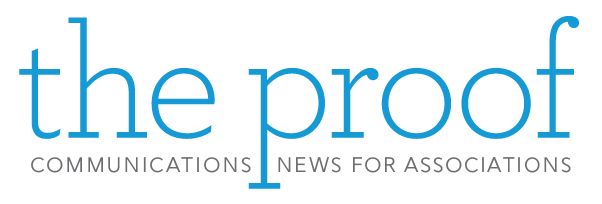
In the ever-evolving landscape of business, where change is constant and innovation is paramount, the importance of staying abreast of the latest technological trends cannot be overstated. In this article, we delve into the transformative power of keeping your organization technologically current and explore the myriad benefits it brings to efficiency, competitiveness, and overall success.
Driving Innovation and Creativity: Staying current with technology fuels a culture of innovation within your organization. It empowers employees to think creatively, explore new ideas, and find inventive solutions to challenges. Cutting-edge technology provides the tools and platforms necessary for fostering a dynamic and forward-thinking environment.
Enhancing Operational Efficiency: Technology, when applied strategically, has the potential to streamline and optimize internal processes. Whether through automation, data analytics, or cloud-based solutions, staying up-to-date on technology ensures that your organization operates with maximum efficiency, reducing manual workload and minimizing errors.
Remaining Competitive in the Market: In today’s fast-paced business environment, being technologically outdated can translate to a loss of competitiveness. Customers are drawn to businesses that leverage the latest technologies to enhance their products, services, and overall customer experience. Staying ahead of the curve positions your organization as a leader in the industry.
Facilitating Remote and Flexible Work: Recent global events have highlighted the importance of technology in enabling remote work. Up-to-date technology provides the infrastructure for seamless collaboration, communication, and project management, allowing employees to work effectively from various locations. This flexibility enhances both productivity and employee satisfaction.
Improving Data Security: As cyber threats become increasingly sophisticated, maintaining robust cybersecurity measures is paramount. Staying current on the latest security technologies helps protect sensitive data and confidential information, safeguarding your organization against potential breaches and ensuring the trust of your customers and stakeholders.
Enabling Better Decision-Making: Access to real-time data and analytics empowers decision-makers within your organization. Technology provides the tools to gather, analyze, and interpret data, enabling informed decision-making. This data-driven approach enhances strategic planning and ensures that your organization can adapt quickly to changing market conditions.
Fostering Employee Engagement: Employees are more likely to feel engaged and satisfied when provided with up-to-date tools and technologies. Investing in the latest software, communication platforms, and collaborative tools not only facilitates more efficient work processes but also contributes to a positive and modern work environment, boosting morale and job satisfaction.
Meeting Customer Expectations: Customers today have high expectations regarding the speed, convenience, and personalization of their interactions with businesses. Staying technologically current enables your organization to meet these expectations, whether through responsive websites, mobile apps, or personalized communication channels.
Adapting to Industry Changes: Industries are constantly evolving, driven by technological advancements. Staying up-to-date on technology ensures that your organization can adapt to changes in the competitive landscape, regulatory requirements, and industry standards. This adaptability is crucial for long-term sustainability.
Attracting and Retaining Talent: Top-tier talent is attracted to organizations that embrace innovation and leverage the latest technologies. A technologically forward workplace not only attracts skilled professionals but also retains them by providing an environment where they can continuously learn and grow.
Enhancing Customer Experience: Technology plays a pivotal role in shaping the customer experience. From user-friendly websites to efficient customer service platforms, staying technologically current ensures that your organization delivers a seamless and positive experience to its customers, fostering loyalty and repeat business.
Future-Proofing Your Organization: By staying abreast of technological trends, your organization is better positioned to anticipate future changes and challenges. This proactive approach helps in future-proofing your business, ensuring that it remains agile, adaptable, and ready to embrace emerging opportunities.
Complying with Regulations: Regulatory requirements often evolve to address new challenges and risks, especially in areas such as data protection and privacy. Staying up-to-date on technology ensures that your organization can implement the necessary measures to comply with changing regulations, avoiding legal complications and reputational damage.
Building a Culture of Continuous Learning: Embracing new technologies fosters a culture of continuous learning within your organization. Employees are encouraged to stay curious, upskill, and adapt to new tools and methodologies. This culture not only enhances individual professional development but also contributes to the overall growth and resilience of the organization.
Aligning with Future Trends: Technology is a driving force behind future trends in various industries. Staying current enables your organization to align with these trends, whether it’s the adoption of artificial intelligence, the Internet of Things, or other transformative technologies. Embracing these trends positions your business as an industry leader.
In conclusion, the importance of staying up-to-date on technology within your organization is not merely a matter of keeping up with the times; it’s a strategic imperative for long-term success. Embracing technological advancements empowers your organization to innovate, compete, and thrive in an ever-changing business landscape. It is an investment in your organization’s resilience, adaptability, and capacity to meet the challenges and opportunities of the future head-on.
Advertisement









